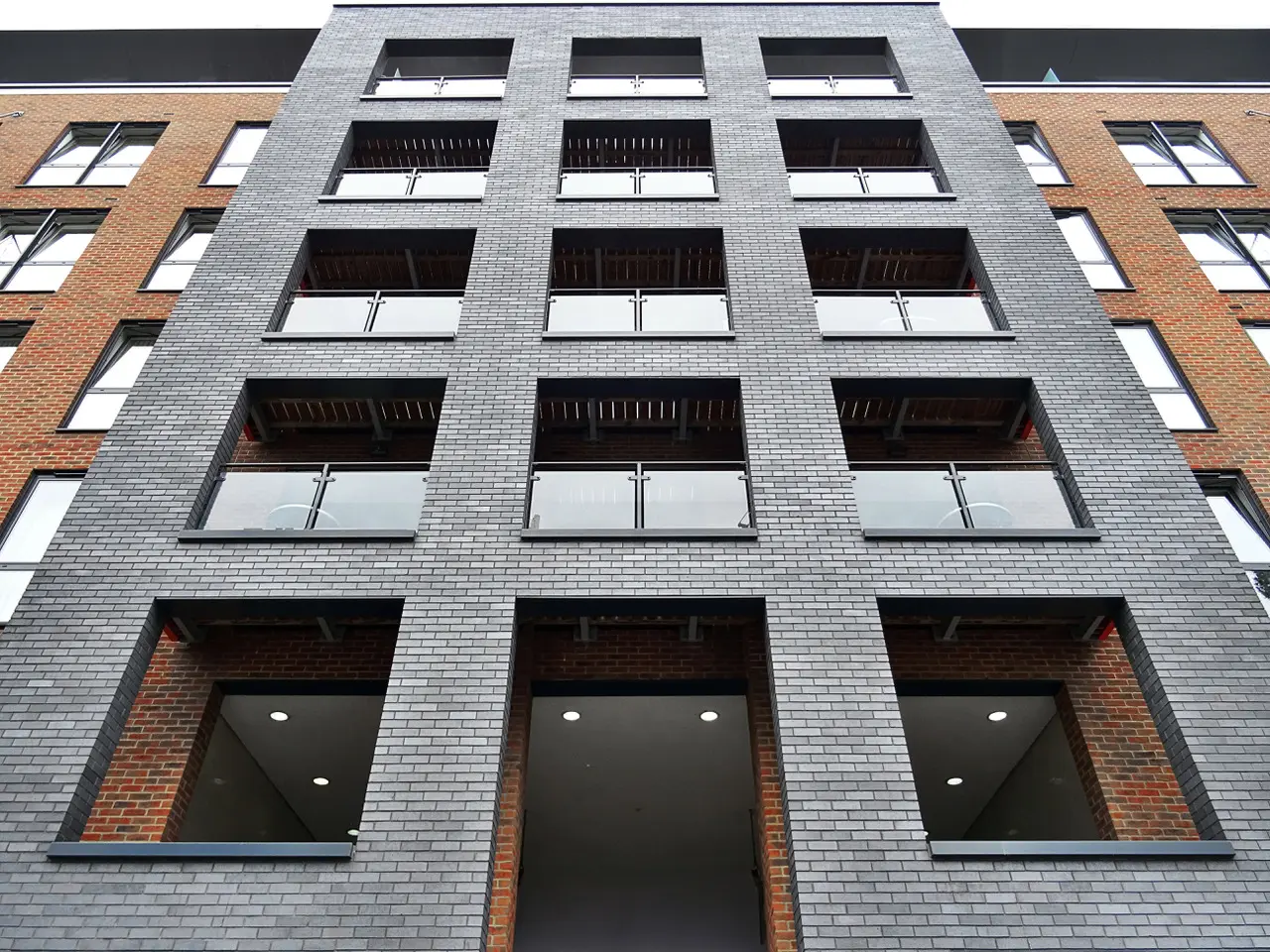
When buying property, you will often see them labelled as either leasehold or freehold. The differences can affect your financial and legal rights. Here we’ll break down the main differences between leasehold vs freehold and the pros and cons of each so you can make an informed choice.

A freehold property means you own the building and the land it sits on, for the lifetime of owning that property. This gives you full control over your property without lease restrictions. You own the property outright, with no lease expiration or worries about ownership reversion.
One of the main benefits of freehold ownership is the freedom it gives. Freehold property owners don’t need landlord permission to make changes to their property. You can alter, renovate, and improve your property as much or as little as you like as long as you adhere to local planning laws. Essentially buying a freehold means you own the whole property, the land, so it’s the preferred choice for many property buyers.
Freehold ownership comes with responsibilities. Freehold property owners are responsible for maintaining the property, which includes arranging and funding repairs and maintenance for the building and any communal areas. Freehold owners must liaise with contractors for necessary work and maintain outdoor spaces such as gardens.

Leasehold means you own a property for a set period, as per the lease agreement, while the land remains owned by a freeholder. Lease agreements can range from a few years to several decades or even centuries. At the end of the lease, ownership reverts to the freeholder unless an extension is agreed upon.
Leasehold properties offer several advantages, especially for those who want convenience and security. For example, leasehold arrangements often include insurance coverage, so you don’t need to worry about getting separate insurance policies, saving you time and money and giving you peace of mind.
One of the biggest benefits of leasehold ownership is the reduced maintenance responsibility. The property owner or management company takes care of the repairs and upkeep, from fixing leaky taps to maintaining heating systems. So leaseholders can have a stress free living without the hassle of these tasks.
Leasehold properties also have additional services like landscaping and window cleaning done by the property management company. These services add to the living experience.
On the other hand, leaseholders must comply with the terms of their lease. A main responsibility is to pay ground rent to the landlord. Leaseholders pay a portion of the service charge to cover communal area maintenance and services. If you fail to meet these financial obligations the landlord can take enforcement action including legal action.
Lease agreements generally restrict property use. For example, no business use without prior consent, and all structural changes need landlord consent. Leaseholders must maintain their property and may be liable for damage to communal areas.
Leasehold properties come in different forms, with flats and maisonettes being the most common. These properties are usually leasehold to facilitate multiple ownerships within a building and the freeholder will control the land and communal spaces. This is more common in urban areas where there is a high-density level of housing.
Houses can also be leasehold, especially in shared ownership schemes where buyers purchase part of the property and pay rent for the rest.
As a lease term gets shorter, extending the lease becomes more important. Leaseholders who have owned their property for at least two years can usually extend their lease by 90 years at a nominal ground rent.
While this process involves negotiating with the landlord or serving a Section 42 Notice and can be expensive, it increases property value and reduces risks associated with short leases.
Buying the freehold gives leaseholders more control. This is called collective enfranchisement and lets leaseholders collaborate in purchasing their building’s freehold under certain conditions.
You’ll need a lease of at least 21 years and can’t own more than two flats in the building. This usually requires legal and valuation advice, and if leaseholders can’t agree on a price, it may go to a tribunal.
Recent legal reforms aim to enhance leaseholder rights. The Leasehold Reform (Ground Rent) Act 2022 eliminates ground rent for most new leases, and leaseholders can extend their leases by 990 years without paying ground rent, making the property market fairer and more transparent.
It’s important to understand the difference between leasehold and freehold properties to make informed decisions in the property market. Freehold properties offer control and financial security, whereas leasehold properties provide convenience, reduced maintenance responsibilities and legal protections. Extending a lease or purchasing the freehold can give leaseholders more control and potentially increase property value. With recent legal changes improving leaseholder rights, the overall experience of owning a leasehold property is becoming more attractive.
When you invest in one of our off-plan property developments we offer a fully managed property management service, which includes everything from leasehold management, tenant management to general property maintenance.
We understand that good leasehold management can help to increase the value of the property, making it a more attractive investment opportunity. By ensuring that the property is well-maintained and managed effectively, investors in our properties can attract higher quality tenants and command higher rental prices, ultimately leading to a higher return on thier investment.
Get in touch with us today via phone on +44 (0) 121 237 4610 or email [email protected] to get started on your investment journey or to ask any questions you may have.
The main difference is that freehold owners own the property and the land outright, whereas leasehold owners have the right to use the property for a set term but not the land.
Leaseholders pay ground rent and service charges, maintain the property. They will need to get the landlord’s permission for any structural changes and adhere to the lease terms.
Yes, leaseholders who have owned their property for at least two years can extend their lease by 90 years at a nominal ground rent by negotiating with the landlord or serving a Section 42 Notice.
The length of the lease affects the value of the property. Leases under 80 years can reduce marketability and make it harder to sell or refinance. So it’s best to extend the lease before it goes under 80 years.
A freehold is when you own both the land the property sits on and the property itself.
When discussing land ownership, we often differentiate between freehold and leasehold.
With freehold land, the property owner also possesses ownership of the land itself. In contrast, leasehold land is owned by a separate entity, distinct from the individual who owns the property situated on that land. In a leasehold arrangement, the property owner holds a lease, which is typically an agreement granting them the right to occupy the property for a specified duration, often ranging between 99 and 125 years.
People buy leasehold properties for several key reasons:
Affordability: Leasehold properties are often cheaper up front, which makes getting on the property ladder more accessible, especially for first-time buyers. Shared ownership leasehold properties also have a lower up front cost.
Location: Often, leasehold properties are in prime or central areas.
Lower Maintenance: If you own a leasehold property, there is usually a management agent employed by the freeholder who carries out ground maintenance.
Community: Some leasehold developments have shared facilities/communal areas to eat, work, relax, or work out, which builds a community within the building.
Rental Potential: Leasehold properties are often very attractive investments with a good rental income.
When a 99-year lease expires on a leasehold property in the UK, the leaseholder has to pay to extend the lease. Failure to secure the leasehold agreement means that the ownership of the property goes to the freeholder, who is the person who owns the land.
There are a number of pros and cons to owning both freehold and leasehold properties, and it depends on the person buying the property in terms of which option is best.
For example, it’s common practice for property developers to buy leasehold properties because they are able to maximise profits with ongoing income from service/ground rents, and they can attract more buyers as they are often cheaper.
With freehold properties, the benefits include not having to pay ground rent and having more control as the person owns the land and the property.